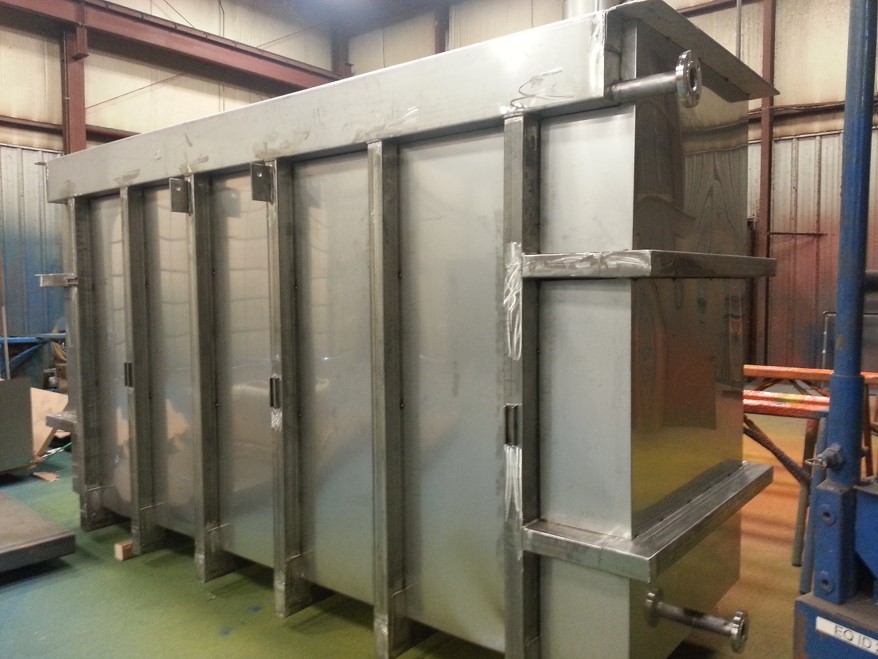
From plating to rinsing to storage, the surface finishing process requires several different types of tanks. Choosing the right tank for each step in the process contributes to the long-term success of your surface finishing operation.
Steel Surface Finishing Tanks
The most commons types of steel tanks used in surface finishing are mild steel and stainless. Regardless of type, steel tanks must be lined for electrical insulation before being employed in the finishing process.
Mild Steel
Mild steel is an economical choice suitable for alkaline chemistries. The exteriors of most mild steel tanks are coated with an epoxy to improve tank durability.
304 Stainless Steel
304 stainless steel is an affordable option suitable for most chemistries, excluding fluorides and chromic acid. Like mild steel tanks, 304 stainless steel tanks must be lined for electrical insulation if used in the plating process.
316 Stainless Steel
This type of stainless steel tank is ideal for applications involving high-temperature pure water. Like 304 stainless steel tanks, 316 stainless steel tanks should not be used with fluorides or chromic acid and must be lined for electrical insulation when used during the plating process.
Plastic Surface Finishing Tanks
Excellent insulators for temperature and electrical currents, plastic surface finishing tanks are ideal for high-temperature processes and electroplating. Most plastic tanks are made of polypropylene, PVC, polyethylene, or Kynar®.
Polypropylene
Polypropylene is the most common tank material for metal finishing. It is affordable, has high chemical resistance properties, and is an attractive tank. Use polypropylene tanks for rinse water or to process acidic or alkaline materials. Avoid polypropylene for nitric or chrome applications.
PVC
PVC tanks are commonly used for chrome processes. They have shorter lifespans than other plastic tanks.
Polyethylene
Due to its pliability, polyethylene is the ideal material for molded or round storage tanks.
Kynar®
More expensive than other plastic tanks, Kynar® tanks offer excellent chemical resistance and are optimal for high-temperature applications. However, they are not a good choice for high alkaline materials.
Choosing the right tanks for your surface finishing process can be complicated, so rely on the expertise of the Seacole surface finishing team to help you identify the best tanks for every step in your process. Contact the Seacole team today.


